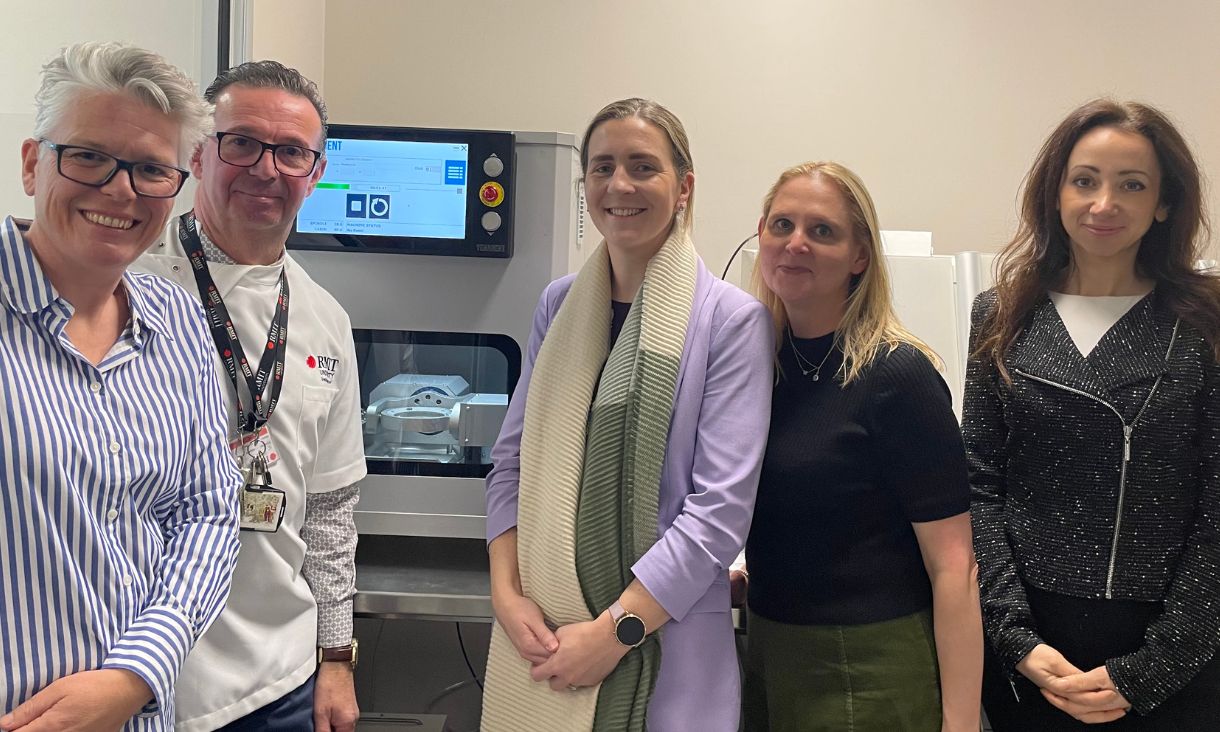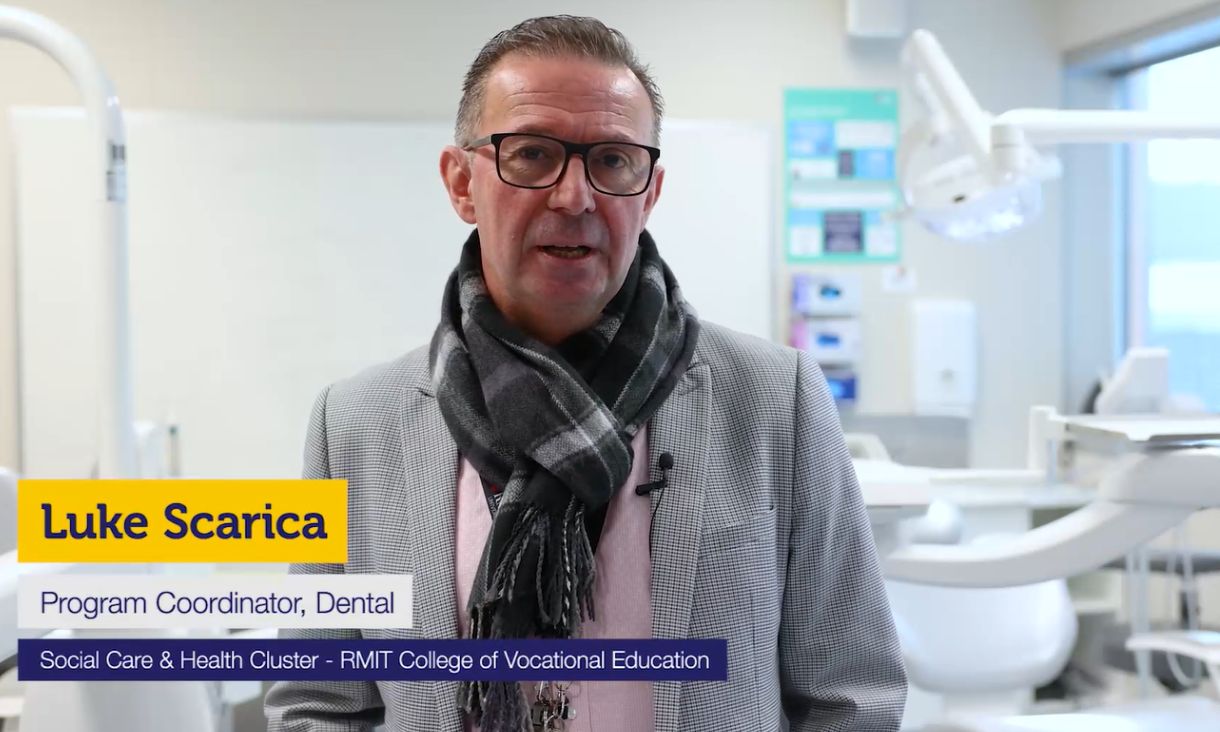Teacher Success Story – Diploma of Dental Technology – Transcript
[On-screen text: Luke Scarica, Program Coordinator, Dental, Social Care & Health Cluster – RMIT College of Vocational Education]
Luke: Hi, I'm Luke Scarica and I am the Program Coordinator for the Diploma of Dental Technology at RMIT and also the Advanced Diploma of Dental Prosthetics. I actually teach a wide range of units of competencies, right through from technology course delivery to advance dental prosthetics.
[On-screen text: Laura Yeomans, Program Manager, Dental, Myotherapy & Massage, Social Care & Health Cluster – RMIT College of Vocational Education]
Laura: Before Luke came on board, we had just come out of the tail end of COVID, which meant that we had a lot of students that had completed some units but not all units, so the cohorts were very mixed. What we managed to do is create some workshops for those students to create a really safe environment so that they could practice their skills and complete at the level that they needed to complete regardless of COVID affecting them.
[On-screen text: Fostering student success through a safe and supportive environment]
Laura: What we then did is we sat down and we had a massive overview of the dental tech units and the best possible units that could be taught at which stage in the semesters. So Luke and I have sat together, we've scaffolded the whole learning and created a student journey.
[On-screen text: Developing student skills with scaffolded learning]
Laura: That means that when they're going through the units, they are completing a robust and it means that when they step into a more complicated skills based unit, they have a really, really clear idea and they have the confidence to move forward. And that was really important.
Luke: In every unit of competency that we're teaching, we start off with the conventional analogue way of doing things and then we slowly integrate focuses of digital via CAD software. So, the students then get to see the big difference between the conventional way and the digital way of doing things.
[On-screen text: Leveraging state of the art technology to create immersive hands-on learning experiences]
Laura: Luke, when he came in with the digital dentistry, he is looking to the future. We are now setting up the CADCAM skill set, which is going out to industry. So it means all of the technicians that are out in industry and don't have a formal qualification in digital dentistry can come on board and can study with us. It also means that he's identified that this skill set is required in industry and is the way moving forward.
[On-screen text: Students gain invaluable, real-world work experience that prepares them for future career success]
Laura: So it puts our students who have completed the CAD Cam digital skill set within their dental tech qualification in a really robust position for entering into industry.
Luke: This brings collaboration within the student body to heights never seen before, as opposed to where your analogue conventional way because it's more on an individual focus based.
[On-screen text: Tech: Dental Technology, DDS: Doctor of Dental Surgery]
Luke: Last year, RMIT embarked on a pilot program to introduce our tech students to Melbourne Uni DDS students to help facilitate the DDS students and service them for their patients.
[On-screen text: College of VE is pioneering cross-university collaboration equipping students with the skills and experience to be workforce ready]
Luke: So the DDS students would take care of all the clinical aspect of the work and our tech students would be manufacturing and designing their appliances digitally.
[On-screen text: Luca Scarica, Student, Diploma of Dental Technology, Social Care & Health Cluster – RMIT College of Vocational Education]
Luca: Luke is a people person and for someone that's been in the industry for so long, he's still very innovative and always looking forward.
[On-screen text: Students are inspired to embrace lifelong learning through a holistic approach]
Luca: With Luke, you have an opportunity to learn techniques that are many years old and also techniques that are still being developed now. We learn at work a lot because there's a lot of pressure to meet deadlines in that. So it's, yeah, it's very refreshing to come and just purely worry about learning.
[On-screen text: Students engage with a combination of diverse evidence-based practices and cutting-edge techniques, ensuring they are equipped with the most innovative methods for success]
[On-screen text: Shan Wang, Student, Diploma of Dental Technology, Social Care & Health Cluster – RMIT College of Vocational Education]
Shan: I like the school environment. It's like everyone is on the same page. All the teachers here are Patricia and Luke. They are like really helpful and they have lots of knowledge. It's a fantastic team.
[On-screen text: RMIT University logo, Discover more at rmit.edu.au]









